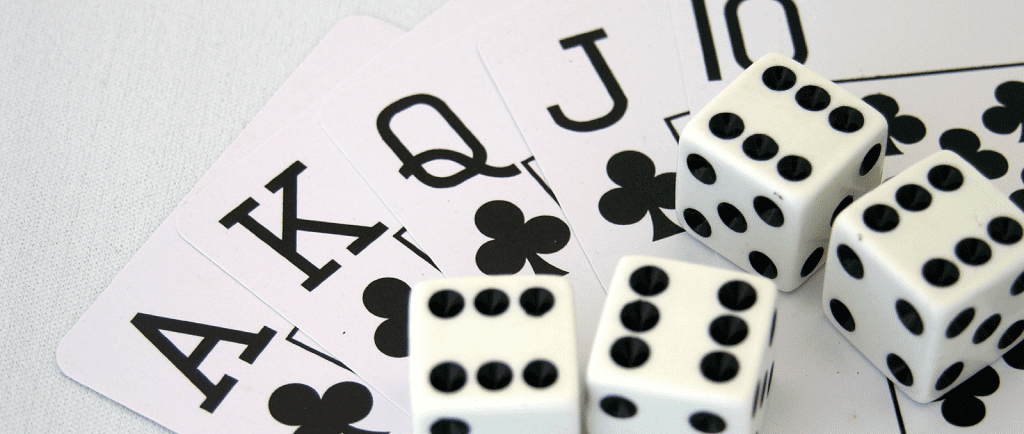
Do you remember these posters? Everything in life can be learned from Kindergarten, Star Wars or cats. Ok, so the title isn’t serious (it’s not a comprehensive list or a life lesson), but I am serious about my passion for variable player powers. My favorite mechanic, ever!
WHY PLAYER POWERS?
To me, one of the most fun moments in any game is going around the table and saying what is cool about your character. Maybe this stems in some part from RPGs for me, and the desire to bring that narrative and player agency to tabletop every chance I get. I really enjoy the idea that there’s a ruleset in place, and each person gets to subvert that ruleset or get unique bonuses. When something occurs in a game that foils everyone but you, or lets you perform a unique action, your personal game story has a highlight moment.
VARIABLE POWER MECHANIC DEFINED
Before we begin though, I think some clarity is in order about what qualifies as variable player powers. It’s obvious right? Well, perhaps not. I say this because this mechanic has been attributed to a lot of games over at BGG, and I don’t necessarily feel like they all fit in the category. For example, here are some cases that feel outside the scope:
- Everything is Unique. BGG lists Ogre, citing that one side plays a faction with one big unit, and the other side has many little units which balance out. Yes, every unit in Heroscape is also different. Every war game is essentially commanding speciality forces, each of which behave differently. When everything is unique, nothing is special.
- Deck Building.You might think that drafting cards into your deck gives you new powers, but you are merely refining a variable engine. A deck builder can embrace variable powers (Sentinels of the Multiverse is a great example), but I’m just pointing out that the format does not inherently do this. If you are the only one to buy and use the Witch card in Dominion, that is not your special ability to curse people…
- Power Selection. I don’t think I’ve seen any cases where someone is arguing that a worker placement or action selection is a variable player power game, but certainly it could come up. If I place here or pick this role, all my units have X. Is that not a variable power? This has led me to believe that there’s an permanence and/or ownership factor to powers. Where this almost breaks is Small World, in which you don’t control every faction you will command at the start of the game, and you have each for a certain number of turns. However, you and only you own that faction combination, so there’s ownership. A power open to anyone to select and/or a temporary effect within a round feels like it doesn’t qualify (although I’m sure there’s a game that will prove me wrong).
Let’s move on to the list, keeping in mind that these games are much deeper than just a single lesson. But here’s some key things that I think define what makes the best use of this mechanic.
EVERYTHING I LEARNED ABOUT VARIABLE PLAYER POWERS I LEARNED FROM…
Only limit is imagination: Possible variable powers is near infinite. Seriously, I count 165 or so existing Alien races, and there’s probably more. If you’ve ever tried to design say 8 or 12 unique powers, (I managed 16 in What the Food?!) you know how hard it is to keep them fresh. How did they do it??
Weighted powers: One key way to allow for huge imbalance in powers is to make variable character life points, or be at the cost of game economy. In Bang!’s case, if you pick the awesome character with three bullets and not four, you have less life, look weak and get shot by everyone. Balances out just fine.
One time use: The solution for truly game breaking powers? Have them fire one time. Ok, they still aren’t allowed to break the game beyond repair and win every time, but this helps soften that awesome “walk through walls” thing. One time powers give players great flavor and an important decision when to use.
Everyone needs a power: Not having a power when others have one sucks. Sorry vanilla werewolf, I hate playing a villager. If you give out player powers, make sure every case is cool.
Combinations: The combination of variable powers with other powers creates interesting, highly repayable gameplay. Even the folks that I know that don’t like Small World, don’t hold anything against it just because you can make flying giants.
Powers can be turned on or off: Of course, I immediately played with the Aliens the first time and powers on, but I like that the human side is there. Unequal powers can be a turn off for some folks, and I think for learning the game, this can be important as well. (But seriously, does anyone prefer no powers in this game?)
Sets focus: I almost forgot 7 Wonders qualifies, due to the slight flavor here.There’s barely a unique power in the base game, to it’s credit. It would upset how smooth the gameplay is if the power came too much from outside the draft. That said, if you get the military focus, now you have something to work for and it focuses you.
Let players invoke it: Now we’re talking agency! If you’ve played the original, it’s great. Absolutely. But seriously, Richard Garfield put genius into the expansion, allowing monster flavor IF you want to go for it. That’s right, each character has a focus, but if it’s not your game play style, you can win without ever unlocking it.
Powers allow deeper AI puzzles:. In terms of all of Matt Leacock’s co-op games, there is a strong AI working against the players. The game is a puzzle to solve, before time runs out. In order to make that puzzle more engaging, each player is given unique way to solve the puzzle (their power), but that piece is only accessible to the whole team every 4th turn say. Used wisely, the goal is obtainable. I think that the powers have created the ability for a deeper challenge.
Character Weakness: Similar I suppose to my point on Bang! but the character flaw is absolutely my favorite part about the BSG powers. Actually BSG is firing on multiple levels – you have a power that’s once per game, a power that is at all times and an element that makes you weaker in the game. It rounds out very well to an enjoyable experience and ties the narrative together.
—
Ok, that’s more than enough. I could rave about variable player powers all day. We haven’t even scratched the surface of all the games that feature this mechanic and what it can teach us, but hopefully I’ve given you some idea of what makes it so great.
BEWARE THE SECRET SAUCE!
I wanted to add this section after discussing this piece with Leaguer Scott Caputo, who chimed in with a definite point of view regarding variable powers.
Scott warns that there’s a temptation to rely on variable powers to make a game fun. So if variable players are the secret sauce on your burger, the underlying burger still needs to be cooked nicely. If your game is dry without the powers, the powers alone aren’t going to save it. I completely agree, and now I’m hungry! Great point Scott!
Now it’s your turn – shout out your favorite lessons from variable player powers and/or games that use them in the comments!







